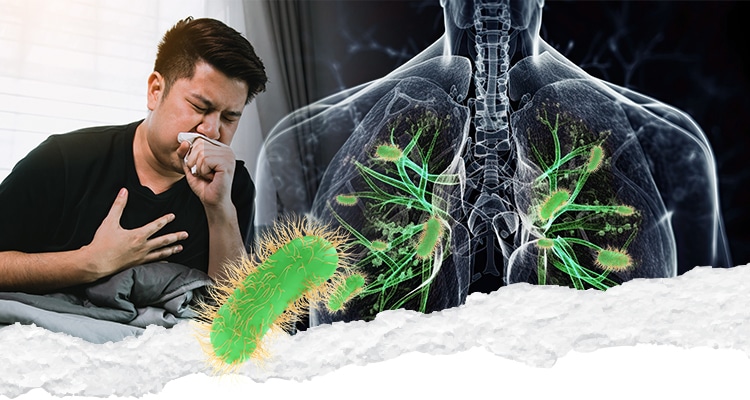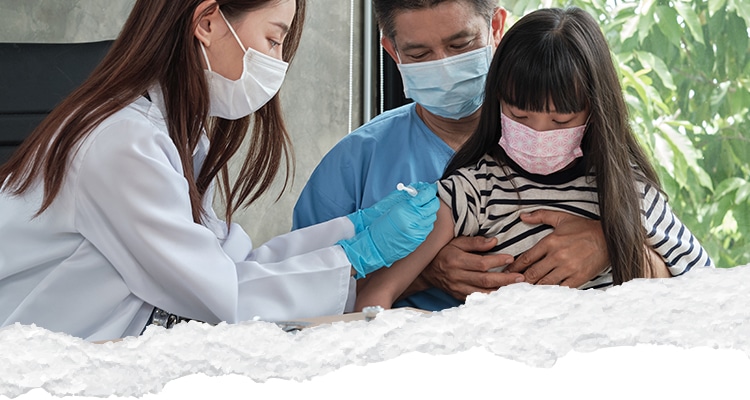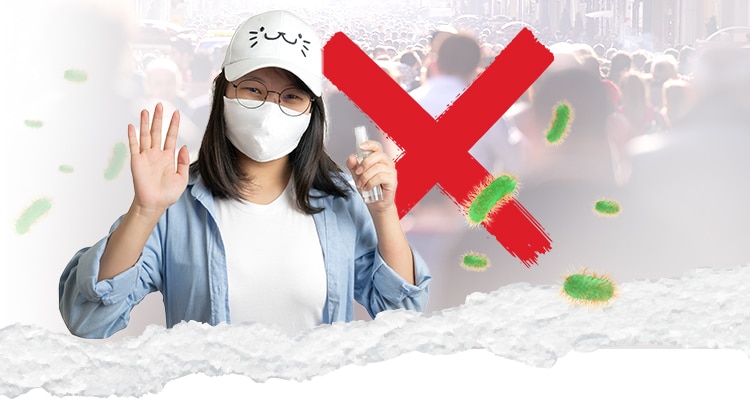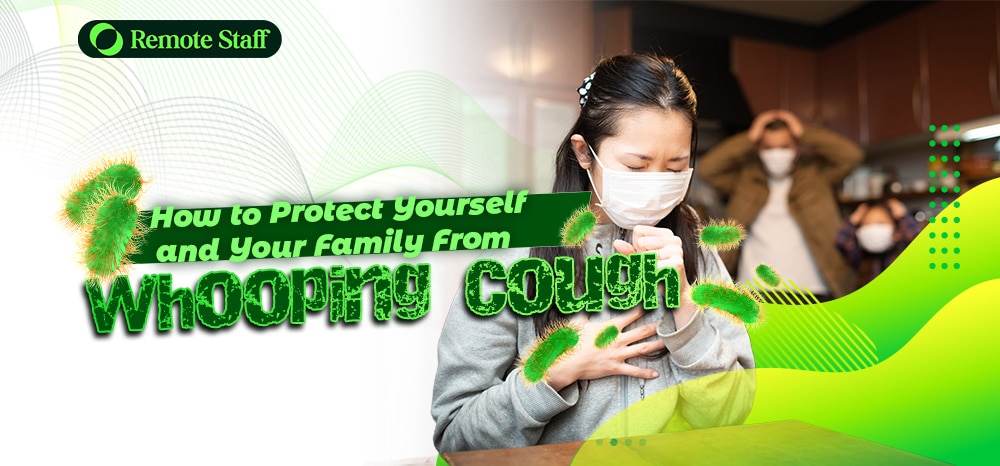While we’re still reeling from the aftermath of COVID-19, it seems that there’s another threat we must worry about.
This time, it’s a sudden outbreak of Pertussis, also known as Whooping Cough.
The Department of Health (DOH) logged 862 cases of Pertussis as of March 23, 2024.
Most cases were from Mimaropa (187), Metro Manila (158), Central Luzon (132), Central Visayas (121), and Western Visayas (72).
Of those affected, 79% were children – two-thirds were unvaccinated.
Fortunately, there are some things you can do to protect yourself and your family from whooping cough:

What is Pertussis?
Pertussis, also known as whooping cough, is a highly contagious respiratory infection caused by the Bordetella pertussis bacteria.
It spreads via tiny drops of fluid from an infected person’s mouth and nose that go airborne when they cough, sneeze, or laugh.
The unusual name comes from the distinctive high-pitched “whoop” sound an infected person makes when they try to breathe during or after a coughing fit.
Infants younger than six months old are especially vulnerable, however, anyone can get it – even those infected before.
Although deaths from this disease are rare, most fatalities occur in infants. Thus, it is vital for pregnant women and people who will have close contact with babies to get vaccinated.
Fortunately, whooping cough is nowhere near as bad as COVID-19. Pertussis vaccines and booster shots are readily available, and antibiotics can alleviate the symptoms and reduce the risk of complications.

Symptoms
It takes 7-10 days for whooping cough symptoms to appear.
They appear mild at first and resemble those of the common cold. These include:
- Runny nose
- Nasal Congestion
- Red, watery eyes
- Fever
- Cough
After 1-2 weeks, these symptoms worsen. Thick mucus will start to accumulate in your airways, causing uncontrollable coughing. Severe, prolonged coughing attacks may:
- Provoke vomiting
- Result in a red or blue face
- Cause extreme fatigue
- Lead to a high-pitched “whoop” with every breath
Sometimes, adults don’t develop the distinctive “whoop” sound, with a persistent hacking cough being the only symptom they exhibit.
In the case of infants, they may not cough at all. Instead, they may struggle to breathe or even temporarily stop breathing.

Get Yourself and Your Family Vaccinated
The best way to protect yourself and your family from whooping cough is by getting vaccinated.
According to the Philippine College of Physicians, the pertussis vaccine significantly reduces the disease’s incidence by more than 92% and its mortality rate by 97%.
The college recommends that babies aged 1½ , 2½, and 3½ receive a three-dose primary immunization series against diphtheria, tetanus, and pertussis (DTaP).
Babies must be given booster shots at 12-18 months old and another dose between 4-6 years old.
Although children are most vulnerable to this disease, adolescents and adults should still check their vaccination records.
The PCP also advises adolescents who completed their childhood DTaP series to receive another booster between the ages of 9 and 18.
Meanwhile, adults aged 19-64 should receive a single Tdap booster instead of a tetanus-diphtheria or Td booster.
Pregnant women of all ages should get a Tdap vaccine, ideally in the third trimester (between 27 and 36 weeks) if they were vaccinated prior. Otherwise, they can avail of a vaccine during the first trimester instead.

Avoid Exposure
If cases of whooping cough have been reported in your area, minimize going out as much as possible.
If you must go out, wear your face mask and cover your mouth and nose when coughing or sneezing.
Always wash your hands with soap and water after coughing, sneezing, or once you get home. If soap and water are unavailable, use alcohol-based hand sanitizer instead.
Fortunately, working with an online work from home setup helps protect yourself and your family from whooping cough since there’s no need to commute.

Maintain a Healthy Lifestyle
As they say: “an apple a day keeps the doctor away.”
Remaining physically and mentally healthy boosts your immune system, reducing your risk of getting pertussis or experiencing adverse symptoms if infected.
For instance, staying active is especially important if you’ve got a work from home job, so that your health doesn’t suffer from a typically sedentary lifestyle.

Take Preventive Antibiotics
Were you exposed to someone with whooping cough? If so, ask your doctor if you can take preventive antibiotics.
Preventive antibiotics, also known as postexposure antimicrobial prophylaxis (PAP), are medicines given to someone exposed to harmful bacteria to prevent them from getting sick.

Stay Safe!
Just as things were returning to normal, there’s now a sudden spike in whooping cough cases across the country.
Fortunately, by following the same safety precautions we did with COVID-19, you can protect yourself and your family from whooping cough.
That said, are you looking for online jobs so you don’t have to leave the house and risk exposure to make a living? Remote Staff is here to help.
Our jobs list contains plenty of positions, ranging from online transcription jobs to online design jobs.
Ready to start your online career? Sign up here. Good luck, and stay safe!

